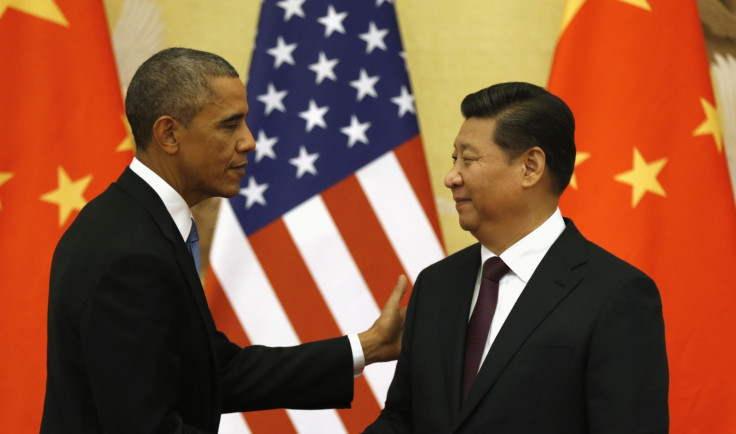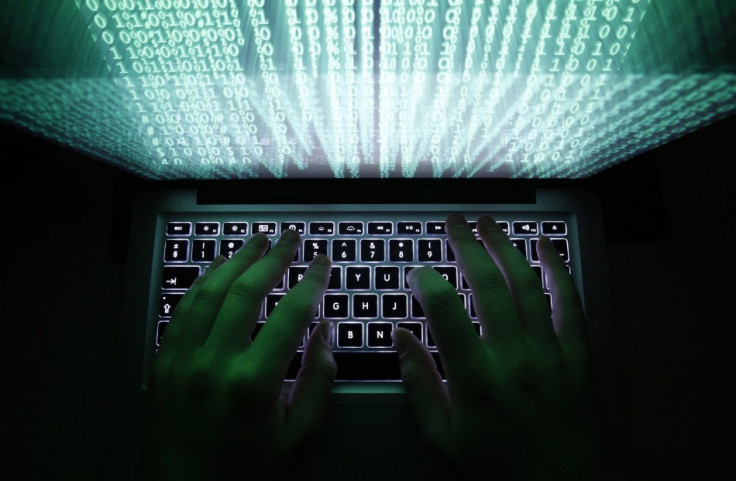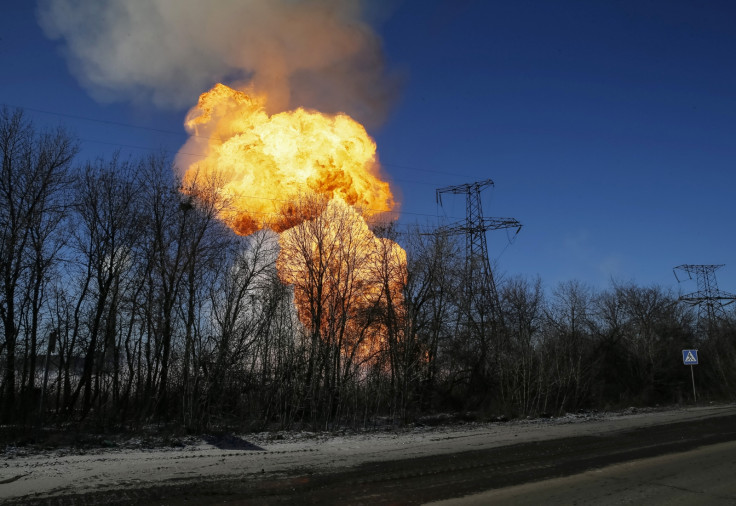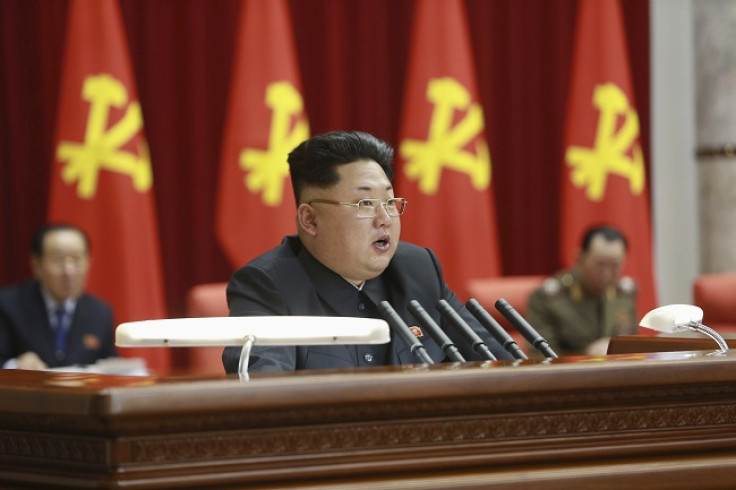US-China summit: 5 key issues Barack Obama must force Xi Jinping to address

Xi Jinping, the Chinese premier, is about to embark on his first ever state visit to Washington for talks with US president Barack Obama. Relations between the two powerhouses are alive but strained. On China's agenda in particular is US support for Taiwan and Tibet. Here are five key topics of conversation that should be on Obama's agenda when entering talks with |Xi Jinping.
Cyber espionage

Chinese hackers routinely target US websites and networks, from businesses to NGOs to government. In just one example from June 2015, Chinese hackers breached US government computers and potentially had access to the personal information of 21 million current and former federal employees. After writing a series of critical articles about high-ranking Chinese officials and their wealth, the New York Times had its website knocked offline by hackers in 2013. While the Chinese government has been accused by US security agencies of sponsoring such attacks, its officials dismiss such accusations.
In 2014, China put the brakes on its cybersecurity co-operation with the US when the American government charged five Chinese military officials with stealing sensitive commercial information by hacking. A year later, it indicated it was ready to restart talks but was waiting for the Americans to move first. Perhaps this is Obama's chance to get things going again. After all, the US doesn't have clean hands in this -- the intelligence whistleblower Edward Snowden leaked documents showing the NSA had hacked into Chinese computers. The Chinese government has accused the US of double-standards.
Intellectual property theft

The theft of intellectual property in China is rife. Pirated films, design rip-offs, knock-off clothes, counterfeit smartphones -- all and more can be bought in the Chinese market. Sometimes these goods even make their way out into the wider world. American firms are losing out on billions of dollars every year because of intellectual property theft in China, where there are lax protections. The issue was costing the US economy $300bn (£191.6bn, €271.8bn) a year, according to a Commission led by former US officials, which published a report in May 2015.
In June, Chinese and American customs officials put pen to paper on an agreement to fight such theft by increasing the prosecutions and convictions of rip-off merchants. This not only helps American producers and manufacturers, but also Chinese suppliers of legitimate goods, who are being undercut by their black market rivals. Obama should double-down on the recent progress between the two countries by extending agreements, or committing more resources to support the Chinese authorities clamping down on intellectual property theft.
Russian aggression in Ukraine

China is close to Russia. Both have stood together against the Western world on a number of occasions, vetoing UN votes and opposing action by the US and EU states in particular. And they moved closer recently with the signing of a $400bn deal that will see Russian gas pumped to China -- enough to meet around a fifth of its needs. There is even speculation of a full-blown China-Russia alliance in the works.
Russia destabilising Ukraine by invading the east of the country has sent West-Kremlin tensions back to Cold War levels. China could be a useful ally in convincing Russia to pull its military out of Ukraine and de-escalate the crisis so the tit-for-tat economic sanctions can be wound back and diplomatic relations restored to normal, not to mention giving Ukraine a chance to heal its recently inflicted wounds. The Russia-Ukraine crisis has hurt the global economy. Given China's own economic woes of late, they may be convinced from a financial perspective that it is in their interest to help calm Russia down and repair some of the damage done to the world economy.
Nuclear North Korea

China maintains shaky relations with the rogue North Korean state, a Stalinist nightmare of famine and gulags which rails against "American imperialism" as it oppresses brutally its own people. Most worryingly, North Korea has developed nuclear capabilities and tested atomic weapons -- of serious concern to its immediate neighbour and declared enemy, South Korea. South Korea is an ally of the US and the two countries often conduct joint military exercises in a show of strength against the North, warning it not to do anything stupid. China-North Korea relations have worsened since the death of Kim Jong-Il in 2013 and his son, the youthful Kim Jong-Un, took over. China still has diplomatic roads into North Korea -- it has an embassy in Pyongyang, for example -- and does trade with it.
Regime change in North Korea, which has been run by the Kim dynasty (Jong-Un is the grandson of its 1950s Soviet-backed founder Kim Il-Sung), is an aspiration of the Western world, South Korea and probably China too. At the very least, China and the US agree on a non-nuclear North Korea. For the sake of all those who live either side of the border on the North Korean peninsula, as well as geopolitical stability more broadly, Obama should make progress with Xi Jinping on this issue.
The yuan's devaluation

China has slashed the value of the yuan in recent weeks as it tries to balance out domestic economic turmoil -- from crashing stock markets to falling exports -- and that is having a knock-on effect for the global economy. China's economic growth rate, though still rapid, is slowing markedly. It is the world's second-largest economy and will soon overtake the US as the largest, according to numerous forecasts. And the yuan may well take the dollar's place as the world's reserve currency.
But why should the US care that much about the yuan's recent devaluation and a Chinese slowdown? Because its own central bank, the Federal Reserve, is thinking about when to tighten its monetary policy, which has been in an ultra-loose stance since the financial crisis. Timing this right is everything. Strengthen the dollar and tighten credit conditions too soon, and you will hurt your economy as it is trying to heal by restricting the money supply. Leave it loose for too long and a cheap credit boom carries its own risks. When interest rates rise, you soon find out that people have taken on more debt than they can afford -- just like in the subprime mortgage crisis -- crashing the economy as defaults sweep through. Obama should press Xi Jinping and his officials on the path of the Chinese economy and plans for the yuan, because these are vital factors in the Fed's timing for lifting interest rates and slowing down its bond-buying quantitative easing programme. It's also in China's interests to help because of the US economy's dominance in the world -- any problems there will soon hit China via the knock-on effect.
© Copyright IBTimes 2024. All rights reserved.






